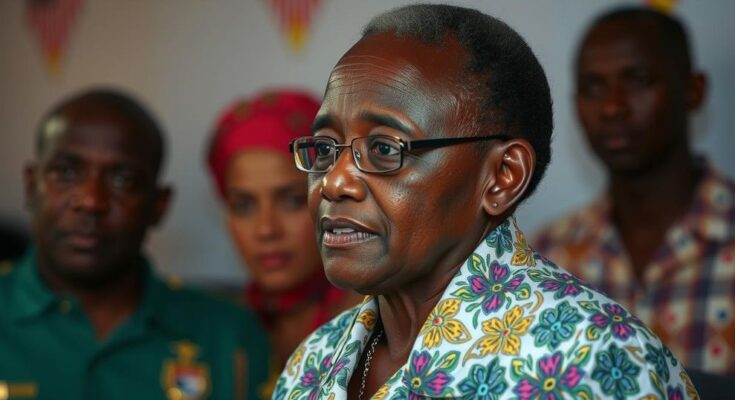Mozambique has seen renewed protests following the confirmation of Daniel Chapo as the winner of the October 9 presidential vote by the constitutional judge. Demonstrations reflect public dissatisfaction with the election outcomes and demand greater transparency in governance.
On Monday, Mozambique experienced further unrest following the confirmation by the nation’s highest constitutional judge that Daniel Chapo, the candidate from the ruling party, Frelimo, emerged as the definitive victor of the presidential election held on October 9. The ruling has spurred a wave of protests across several cities, where demonstrators are expressing their discontent with the election results. The situation remains tense, as citizens demand transparency and accountability in the electoral process, raising concerns about the future of democracy in Mozambique.
Mozambique’s election process has been marred by allegations of irregularities, and the results have been subject to intense scrutiny. With Frelimo historically dominant in Mozambican politics, the recent victory of Daniel Chapo has reignited fears of a continuation of the party’s lengthy reign without substantial opposition. The protests indicate a growing dissatisfaction among the populace, who are calling for reforms and more democratic governance amidst concerns of electoral integrity and political repression.
The ongoing protests and the confirmation of Daniel Chapo’s victory underscore significant societal tensions in Mozambique. As citizens rally for improved electoral practices, the situation calls for urgent dialogue to address their grievances. The implications of the current unrest pose serious questions about the democratic trajectory of Mozambique and the role of the ruling party in shaping the nation’s future.
Original Source: www.energyintel.com




